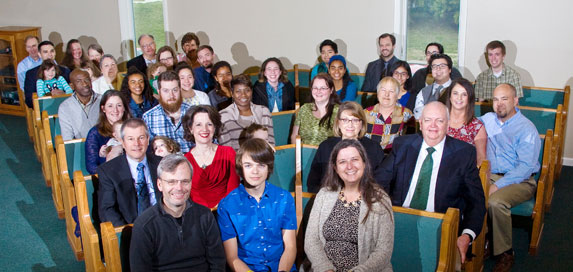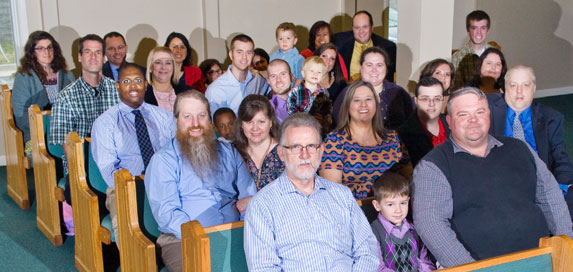Theme for 2025: God is a Keeper of His Promises
When we think of promise keeping in our culture, we see failed pledges, promises broken, and excuses made. The inability to keep promises is even a part of our language – instead of “breaking a promise,” it is called “decommitting.” Such a culture can cause us to become jaded and perhaps fail to remember that we worship a God who is trustworthy. The faithfulness of God is comforting when we are “standing on the promises of God.” Human beings make promises based on what good things or bad things will happen. Our focus this year will be on the blessings God has promised.
God promised Abram that He would give him a land, He would make him a great nation, and that all nations would be blessed through him (Genesis 12:1-3). Those three verses summarize the Bible as the rest of Scripture is about the fulfillment of those promises, particularly “…and in you all the families of the earth shall be blessed.” There has been no other case where people were blessed before they were born. God expounds upon these promises when Abram seeks to understand how he would have heirs when he had no child of his own (Genesis 15:1-5), but Abram “believed the Lord and He accounted it to him for righteousness” (Genesis 15:6). This verse is repeated elsewhere as an example of faith (Romans 4:3; Galatians 3:6; James 2:23) and shows that God is looking for children who will believe Him and build their lives around Him. God embellishes upon the promises (Genesis 17:1-5) and changes Abram’s name from Abram (“Exalted Father”) to Abraham (“Father of a Multitude”). After Abraham obeys God’s command to offer Isaac as a sacrifice, God comes down to man’s level by telling Abraham, “By Myself I have sworn” (Genesis 22:15-18). It is common for men to swear to show their sincerity in making promises, and God could swear by no one greater than Himself (Hebrews 6:13-18).
In each promise, God demonstrates His trustworthiness and Providence. There were numerous threats to Abraham’s seed (Israel) by the nations around them, but God protected them. During the deportation, the Jews were dispersed to multiple nations (II Kings 17:5-6; II Chronicles 36:17-21), but God returned a remnant that was just as miraculous as their deliverance from Egypt (Jeremiah 23:7-8). During the 400 years of silence, God provides no revelation to the nation of Israel – in all that time, nations rose and fell, but not Israel. Despite efforts of Satan to thwart the fulfillment of the “seed of woman,” God’s promises were kept.

The promises made to the patriarchs included blessings that were a long time in the future (Hebrews 11:13), and yet the patriarchs considered God to be trustworthy (Hebrew 11:17-18). The promises made to Christians are described retroactively. Paul shows how the promises made to Abraham point to Jesus Christ (Galatians 3:15-16) and how Christians are heirs to those promises (Galatians 3:29). Paul also ties the promises made to Abraham and the patriarchs to Christ and to those who follow Him (Romans 9:3-5). When Jesus reveals Himself to the men on the road to Emmaus, He goes back to Moses and the prophets to confirm that God’s promises were kept through Him (Luke 24:25-27). On the Day of Pentecost, Peter tells the Jews gathered for the feast that the death and resurrection of Jesus was part of God’s predetermined purpose (Acts 2:22-24). In the temple, Peter uses the healing of a lame man to point the crowd to Jesus and show how His sacrifice was foretold by the prophets and the fulfillment of the promise made to Abraham: “And in your seed all the families of the earth shall be blessed” (Acts 3:18-25). In Antioch of Pisidia, Paul tells the people gathered in the synagogue that Jesus was the shoot that arose from the dead stump of David to fulfill the promises of God (Acts 13:23, 26-39). Only God is able to keep His promises in such a way throughout eternity.
We may ask why it took God so long to fulfill the promises first given in the Garden of Eden (Genesis 3:15). Throughout Scripture, we see more than God’s dealings with man; we see that God is worthy of our trust because He always keeps His promises. God has promised Himself to us. Have we promised ourselves to Him? That is the decision each of us must make in 2025.







